Pete Sutton's Blog, page 19
April 19, 2017
On the subject of silence
It’s been almost a month since the last blog post – so what’s been happening?
I’ve finished the major rewrite on Seven Deadly Swords and it’s with a few trusted beta readers before sending back to the editor at Grimbold. Which is quite exciting – more details on when the book will be released will come later in the year.
I attended EasterCon which was very enjoyable & got to catch up with plenty of friends on the Con scene. Great to see Dave Hutchinson win best novel at the BSFA awards for Europe in Winter.
This weekend I’ll probably be at Hawksbury Upton Lit Fest but I have a non-fiction deadline so depends how that goes.
I also have a short story deadline for end of the month but after that I’ll be revisiting the novel ideas I have to flesh out one or two synopses and starting novel number 3 which is provisionally called – “The Certainty of Dust”


March 22, 2017
On copyright and getting it in writing
Seeing an American author of my acquaintance announcing that someone has taken his work and adapted it without his permission has inspired me to write down my experience of exactly that.

I used to write for an RPG. This was a sole trader business when I started writing for it. After many years the sole trader started a sister company then created “proper” businesses, registered at companies house with “directors.” I became “Creative director” of one of those businesses (the original) – it was less successful (commercially) than the 2nd business which was recycling all the material of the first. (This second business was aimed at a more casual gamer and was a simplified and much cut down version of the original – but it proved more popular and financially lucrative) This led to the hostile takeover and the newly combined RPG company and I parted company.
As the original sole trader was run more like a club than a business then nothing was ever officialised, no contracts were signed and people wrote for it in a spirit of mutual benefit. It was, frankly, an amateur arrangement. No problem with that at the time, the problem only came when the situation changed.
When the two businesses were set up this amateur situation continued. For many years, even before becoming the official “creative director” I was collating the background from scenarios and creating most of the background documents. As well as creating a lot of original documents I also edited all the documents that were written by everyone else.
Before the hostile takeover it was suggested that a set of books be produced – a GM’s guide, Players handbook, a scenario, and if successful a series of scenarios – to sell to the general public. Kickstarter was suggested as a vehicle to raise the capital to do so. At the time I insisted that the IPR was sorted out before that happened.
When the hostile takeover happened it turned out that there was no position for me in the management so I decided to leave. It was an amicable departure (or at least I thought it was).
A few months later the instigator of the hostile takeover announced that there would be a Kickstarter to raise funds to produce the books that had been suggested. No work had been done to sort out the IPR.
I asked that they didn’t use anything that was solely created by me and that I was consulted on mutual ideas since I’d had such a hand in collating/editing. My concern (and I already had a few published short stories at this stage) was that they didn’t use any document that I’d written – because I may wish to adapt for any future story/book.
They refused.
Three months of ever increasingly acrimonious argument about who owned the copyright ensued before the team (but not the Kickstarter creator) complied with what I’d first asked for. Friendships were lost and no one covered themselves in glory (including me) – it was a bitter time and my mental health suffered. I became quite paranoid and distrustful for a period after that.
At the time of my writing those documents for the RPG I had no thought of copyright. (Not until the company started to become more professional – and then I was a lone voice when it came to IPR). No contracts, or even gentlemen’s agreements, were signed/made. As far as I was concerned, since there was also no money changing hands, the writing was mine.

The company thought they owned everything and could do what they liked with it. Whilst I was comfortable for them to continue to use the work in-house it was another matter to adapt the work to create books to make money off my writing without my permission, attribution or providing any remuneration. Passing off someone else’s work as your own is wrong – that’s not a difficult concept, it’s something everyone learns in school. Yet they told me that I should be flattered they wanted to use my work. Throughout the argument over IPR the team demonstrated no understanding (and no interest in understanding) how copyright works.
The Kickstarter was very successful, netting the team almost £16,000 to create 4 books, the GM’s Guide, a Player’s Handbook and 2 Scenarios (there were some stretch goals achieved). I awaited a draft as they’d agreed that I could have a veto on what was included if it was my work.
A year after their Kickstarter was funded they sent me one partially finished book (the GM’s guide). They were already 6 months late delivering the books that people had pledged money for at that stage.
Some chapters were pretty much cut&paste from documents I’d written. I asked them to rewrite the contentious chapters.
What was really annoying was that I was put in the position of “proving” that I’d written what I claimed I had written. I was treated as a liar several times before I did actually prove things via digging out original documents created in the early 2000’s. In some cases I had to provide screenshots of text comparison showing that chapters in the one book they sent me for comment were 80% my words (and the 20% difference being the names that they’d changed).

It was horrible.
The fact that this saga is not over yet is also horrible. Mostly for the people who have pledged money for the books, and so far have nothing to show for their money. But also for me – as it is possible that the books (if they ever appear) may still have my writing in them. The problem you see is that the original team have broken up and it is now only the creator of the Kickstarter working on it. The one that didn’t want to comply with my wishes in the first place.
Last year I had a conversation with a member of the team and found out that everyone bar the creator had walked. The books still hadn’t appeared. I queried the ‘creator’ and things became acrimonious fast and he cut off all communication.
As it stands today I only have the occasional updates on the Kickstarter (as a few people haven’t given up asking for their books) to see what’s going on. And by talking to people I know who had backed it. IF the books ever appear (I don’t know how likely that is) I won’t see a copy (except perhaps if a backer shows me a copy) and it may have my writing in. The plan was to sell them to people outside the backers. If that happens it’s entirely possible that my writing will be sold to people against my wishes, without attributing me and for me to get none of the money.
However the fact that the books were funded 3 years ago and have still not been produced makes me think that the Kickstarter creator has no intention (or no competence), at this stage, in producing them.
A quick review of where the money has gone (according to a backer who has seen the accounts on a backer’s only update) shows that the Kickstarter creator has spent too much on add-ons (things like lead miniatures) and art and now does not have enough money to refund people.
If things had worked out differently, if they’d offered me a role in the new company for example, or worked with me on the books – instead of against me – then perhaps people would have their books. Maybe the problems they are having in producing the books are not self-inflicted (although it certainly seems that way from the outside) and I would also have failed the backers? (the fact I’ve published 2 books under my own name and project managed 5 anthologies, editing 4 of them, to publication in the same period makes me think not though).
But if I had worked on these roleplaying books, then perhaps I would never have had that kick up the arse that started me down the path to being a published author…
So what have I learned?
I learned a lot about copyright law – having had to polish the arguments!
I learned that some “friends” are willing to screw you over when it comes to business
And the most important lesson I learned is that you should always, no matter how amateur the project seems at the time, have an agreement over your writing. Get it in writing – in a proper contract if at all possible.



March 17, 2017
Catacombs of Terror Review
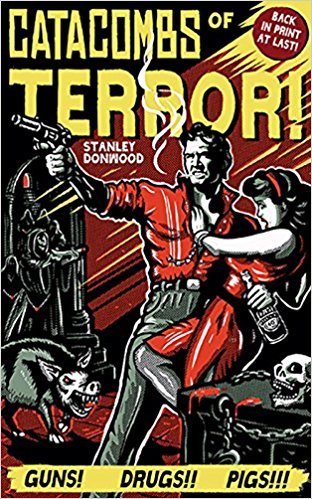
Valpolicella is a PI in Bath and he is told that he’s going to be arrested for murder in a few days and the only way to circumvent this looming fate is to investigate the company that runs the CCTV, who are also doing an archaeological dig just outside of town.
As the tagline reads – “Guns! Drugs!! Pigs!!!” you’ll be glad to know you get all of those things in spades.
There’s an amusing “How this book got published” story at the beginning – created for the fundraiser that funded the book – about writing the book for a cider-fuelled bet with a publisher, the rise of Amazon, rare book dealers and other insalubrious dealings…
The book itself romps along running on whiskey, cigarettes and lines of coke with an amiable narrator and enough of a plot to leave you guessing. There’s a rather abrupt end but on the whole it’s a very enjoyable read.
It’s worth mentioning that the cover is fantastic, the paper edges are red and overall it’s a very handsome book to have on your shelf.
Recommended.


March 9, 2017
My name is Mary Sutherland
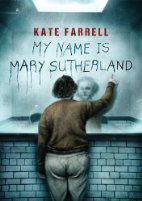
The narrator of this tale is a young girls, the eopymous Mary Sutherland, who lived in Aigburth and who had family in Birkenhead. I grew up in Birkenhead so her voice was immediately recognisable.
The book starts with a TV crew coming to interview Mary who is in an institution. Mary then tells the story in her own words of how she ended up in the institution, the trouble started when her mother got sick.
Farrell is great at creating suspence and you know that it doesn’t end well, but you don’t know exactly why until right the last moment. It was an effective little plot tightly told in 170 odd pages.
I didn’t think the framing device (of the TV interview) was needed personally and there was an occasional lapse in voice but overall this is a well-written book.
Recommended


March 3, 2017
Writing books and the writer
I have a confession. I’m kinda addicted to writing books. You know the type -books about the craft of writing.
I’ve just finished a classic in the genre – Of Worlds Beyond
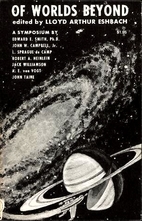
A “Symposium” on the writing craft including such luminaries as EE Doc Smith, Robert Heinlein, and John W Campbell Jr
It has that essay by Heinlein – the one you’ll come across eventually if you are a budding genre writer – which includes Heinlein’s 5 rules:
You must write.
You must finish what you start.
You must refrain from rewriting except to editorial order.
You must put it on the market.
You must keep it on the market until sold.
(which spawned a whole writing book , which I have also read)
The vast majority of writing books are not worth the paper they’re written on. Or feel like they are useful for any other writer bar you. But there are books that come along at the write (haha) time and explain something about the craft in a way that makes sense at last.
Writing books can be further divided into sub-genres:
The general successful writers talking generally about their general writing
How to use punctuation
The English language
Complete writing courses
Writing for specific markets, or in specific formats, or in specific genres
A whole book on one aspect of writing e.g. Dialogue or character or worldbuilding
The business of publishing or self-publishing
How to market yourself as an author and become a brand
There are probably others. I have a bookshelf full of writing books I’ve collected over the last few years. I’m of the generation (pre-internet) that if you wanted to learn how to do something you’d first read a book about it.
Has reading this sort of book made me a better writer? I think so . In Of Worlds Beyond John Campbell says that writers are born, not made. This is a common belief and one that you can come to yourself if you’ve ever been a slushpile reader. Some people inherently know how to tell a story, have some sort of narrative gene, even if they don’t have the technique to do so. Some people have technique but no narrative skill. Some poor souls have neither technique nor technical skill.
When I started writing I believe I had narrative skill, but not the technique (others may disagree on the narrative skill!) but then I’d been writing for an RPG before deciding to write short stories or novels and that probably helped.
I’m not sure if it’s true, and maybe desire to write will eventually bring you to narrative skill and a mastery of the technical side of the craft. But not without mediation.
I usually get something from a good writing book, if I get nothing from a writing book I judge it a bad writing book.
This one? I got several things and had at least one aha! moment. I’d never say don’t read such books but I would say that if you are going to read writing books, read several (hell I’ve probably read in excess of 50 in the last 5 years) and don’t rely on them for all of your writing advice. What’s key, the one thing you cannot do without as a writer, is feedback, and feedback from people who know what they’re talking about.
There are a few books I return to again and again for advice. I’m not sure Of Worlds Beyond will be one of them, although there was one essay that I’ve already read twice so it’s entirely possible.
If I had to choose 5 that I think you should have on your shelf then I’d say:
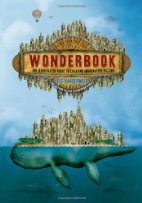
Wonderbook by Jeff VanderMeer is especially cogent, with a wry sense of humour and includes articles by many brilliant authors. If you are especially visually minded you should read this.
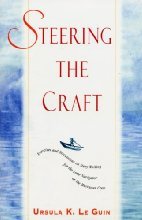
Steering the Craft by Ursula Le Guin this has some advice about prose rhythm I’ve not seen elsewhere and it has some good advice on how to run a writing group/critique session.
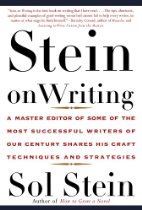
Stein’s On Writing has, hands down, the best explanation on “Show don’t tell” for my money.
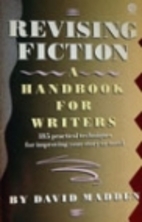
Revising Fiction by David Madden, concentrating on how to fix problems in your writing is a great resource and a book I return to often.
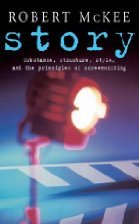
Story by McKee is a classic of Screenwriting advice but a lot of what he talks about in this book can be applied to novel and short story writing too.


February 22, 2017
Arrival of Missives – A Review

As usual with Unsung this is a gorgeously produced novella and one that has been written with care. I read Whitely’s The Beauty as an ARC a couple of years ago and fell in love with it. Therefore I’ve both looked forward to this second book and put off reading it. Because what if The Beauty was a one-off?
I’m glad to say that this is just as good, maybe even better, than The Beauty. It has the same lush prose and a weirdness that feels both real and meaningful. Shirley is a student who is determined to get into college and become a teacher so that she can return to her village and assist Mr Tiller with whom she is in love. Tiller has returned from the Great War as “less than a man” and is also several years her senior.
When Shirley approaches him and he reveals the missives of the title things take a weird turn.
This is a slim novel at 120 pages and easily readable in 1 sitting. I loved it.
Recommended


The Memoirist – A review
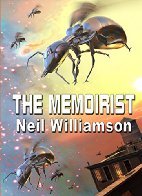
Neil Williamson
Why are so many powerful people determined to wipe a poignant gig by a faded rock star from the annals of history? What are they so afraid of?
Near future SF set when surveillance culture has become ubiquitous via small flying drones that look like bees (hence the cover). Rhian writes memoirs and she is happy to take on a commission from an aging former rock star. However, the commission takes her down a dangerous path in this complex and thrilling exploration of privacy.
What would the world look like if no-one could keep a secret?
There’s a big idea in this small book and Williamson does a grand job in a short space. The characters are well-drawn and it certainly kept me turning the pages to gorge myself on it in one hit. It’s such a fascinating concept, both the story-world posited and the proposed antithesis.
I’ve been interested in Jeremy Bentham and his ideas for a while and it’s always interesting to see these explored, especially in a speculative work.
Recommended.


February 20, 2017
Book Review – The Genes of Isis
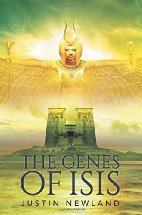
The Genes of Isis by Justin Newland
Published by Silverwood
Cover by Jim Burns
I was given this book in return for an honest review.
On the Bristol SF scene, Justin Newland is known as the man who asks interesting questions. At readings or during panels you can rely on him to ask the authors a penetrating question, and from that habit, you know that he thinks deeply about things. It’s obvious that the same deep thought has gone into this antediluvian tale (and bless him for doing a pre-flood story so I can use the word antediluvian in the review) as well as lot of good old fashioned hard work.
We are in a prehistoric time and there are three races upon Earth – humans, who have been promised “The Surge”, an evolutionary leap, by the Source; Solarii , a race of angels who have taken human form, who have been tasked by the Source to aid the humans and the hybrids – a strange genetic mish-mash resulting from the rape of humans in the past by another race of angels called the Helios, who are now banished and trapped.
There is a short sample from a “Book of Enoch” that gives you a very brief sit-rep then Newland drops you straight into a complex world and you run to catch up whilst gawking at the colourful societies he conceives for your pleasure.
The Earth bears some similarity to our own except for the fact that there are “sky-waters” through which green sunlight falls upon the land.
There are two main characters – Akasha, revealed in the prologue as “mother to you all” and Horque, a dour Solarii elite. When Akasha prophecies that the sky-waters will fall and flood the Earth that starts an apocalyptic countdown. The main thrust of the plot is the burgeoning relationship between the two main characters.
There’s a lot to like here with a healthy dash of Newland’s own unique vision on top of enough Egyptian mythology to provide handy route signs along the way. The magic system, the Astral, is well-developed and not overbearing (unlike some magic systems can be in epic fantasy) and Newland has a great turn of phrase when it comes to similies, often animal related – “A whisper scurried around the crowd like a busy scarab beetle.” or “The crowd bayed at the scribe like a pack of hyenas.” and some of the locations were evocative, I especially liked the Whispering Tower – “From this gallery they say you can hear fragments of every conversation in the world.”
The pre-flood era is a blank canvas apart from Biblical accounts and Newland threads some of those in – there is, of course, an Ark – but what the author does with the bare bones is often surprising and original.
I would have liked there to have been a little more development of the non-Egyptian societies, and sometimes the language and interactions felt Biblical – although there was no “wailing and gnashing of teeth” there could well have been – but that could be seen as a strength as it is all part of reifying the worldbuilding, and I suspect it was deliberate. Bits also felt like they were part of some vast world behind the world being presented and only briefly introduced rather than given the chance to fully breathe. This gave a sense of confinement to the text, as though a much bigger story was stuffed into the small space of just one book.
Newland has a knack of taking the disparate pebbles of history and building a structure from them. He’s done this in his published short stories and in this, his first novel. He is currently working on a novel inspired by the great wall of China. I look forward to seeing what worlds his imaginative writing will build from that.


Guest Post – MD Presley
[image error]Photo credits: thinkgeek.com
MD Presley is a screenwriter, blogger and occasional fantasy novelist… which basically means he’s a layabout. But feel free to check out all his incoherent ramblings at mdpresley.com, or on the facebook at www.facebook.com/solsharvest
And grab his first novel The Woven Ring for free Feb 20-24th while you can!
Mr Presley and I were chatting about stuff and I mentioned that I’d written a story for Fossil Lake 3 – Unicornado which featured Unicorn Burgers, and he said he had a recipe for that and so here it is:
Unicorn Burgers (+ Free Kindle Download)
In celebration of the free Kindle download for the Gunpowder Fantasy/ Grimdark novel The Woven Ring Feb 20-24th, learn how you too can barbecue like the pros.
[image error]
Ah, another day at Bugbear BBQ and another request on how to prepare unicorn, this time in burger form. Due to our decision to only serve ethically-sourced, non-sentient animals, coupled with our fear of divine retribution for slaying such a beloved beast, unicorns are decidedly off the menu at our restaurant.
Because to serve one is so obviously a sin.
[image error]
However, as Oscar Wilde once said, ‘there is no sin except stupidity,’ and since the subject comes up so very often, we thought we’d put out an intelligent recipe for Unicorn Burgers. One that is entirely hypothetical. Because we at Bugbear BBQ would NEVER associate with the despicable types of people who would actually eat unicorn. No, we’d rather pick their brains.
Sometimes literally.
[image error]
The Cut
Now there are two major problems when it comes to preparing unicorn burgers. The first is, due to some jokers passing around pictures of supposed unicorn meat, that many people believe it to be filled with sparkles. This could not be further from the truth, though we believe we’ve tracked down the source of this misconception. It is that being full of light and everything laudable, unicorn meat is actually marbled with rainbows. As such, a slab of unicorn is really a beautiful thing to behold, what with resplendent stripes of every color intermingled with delicious fat and flesh.
We believe this is why sparkles are added to cast off pegasus and horse meat, to give the illusion of rainbow-essence. But, as any elementary student can tell you, when you mingle all the colors together you actually get brown. So ground unicorn, of which all burgers are obviously made from, looks very similar to simple ground horse.
As such, the minute you see sparkles in your meat walk away and report the seller to the nearest constable. For the crime of stupidity if nothing else.
The Rub
The second issue that arises when preparing Unicorn Burgers is again that divine retribution for killing such a hallowed creature. While this can come in the obvious form of lightning strikes or a rampaging paladin bent on your destruction, another issue comes in the form of gastrointestinal discomfort, which can often lead to bad dreams. Alchemists generally believe this is due to the unicorns’ inherent ability to cure poison, which remains in their meat and affects those of darker alignment. You know, those that would dare to eat them.
As such, again as any elementary school student knows, you need to nullify that poison-curing, divine nature with poison; same as removing the acid from vinegar by adding it to basic baking soda.
[image error]
This is accomplished by brining the unicorn meat in some type of poison. Cockatrice blood supposedly works great, as might belladonna or other common herbal poison you’ve got around. The ratio is never a given though, and as such many pitmasters simply have their assistants taste the poisonous contents of the brine every few hours. If the assistant immediately dies, then the poison has yet to be fully counteracted, and this process should continue until the assistant survives and everyone knows the meat is good to eat.
Well, to cook with at least.
The Cook
We usually make our burgers from ground troll formed into ¼ pound patties (though we have been known to stuff them with bacon, cheese, and jalapenos on occasion), and would suggest doing the same with our hypothetical unicorn burgers. These are then placed in the smoker at 225 degrees, usually under our smoked hunks of troll so as to let them soak up any dripping juices.
Like all ground meat, the only suitable internal temperature for serving is 160 degrees, which should take about an hour, at which point we reverse sear the meat to get a delicious crust. Now savvy eaters will note that this temperature falls into the dreaded “well done” range, and is usually something we avoid. However, due to nasty microbes, this is the only safe temperature ground meat can be served at.
That said, since whoever is eating this unicorn burger is already risking divine retribution, we highly doubt that some tiny microbes are going to dissuade them. And if they’re willing to kill a unicorn and then demand you cook it to order, chances are you’ll end up on the plate next if you refuse. So it seems yet again that the customer is always right. Even when they’re wrong.
Sauces, Sides and Pairings
We at Bugbear BBQ cleave close to our roots and therefore only serve our burgers Texas-style. And to those out there that believe Texas-style somehow involves either a fried egg or BBQ sauce, let me quickly disabuse you of that notion. No, it means a slather of mustard, three sliced pickles, and a smattering of onions. Lettuce and tomatoes are decided on a case-by-case basis, and if a customer requests either catsup or mayo, we simply point them towards the exit.
Usually after a sharp slap.
As to sides, there is only one possible option when it comes to burgers, no matter what kind, and it is fries. The plain, potato variety. Anything else is an affront to the establishment.
As for a drink pairing, there is again only one option: A stout beer as dark and bitter as the sin you’re about to commit.
But again, there is no sin except stupidity, so eat smart and enjoy!
Don’t forget to grab MD Presley’s first novel The Woven Ring for free Feb 20-24th while you can!


February 13, 2017
The view from the cheap seats*
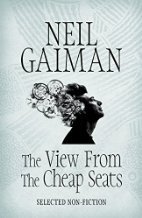
I’m impressed with Neil Gaiman’s powers of recall. The introductions in this book have him remember where he was, what age and who he was with when he first encountered writers or first read their work.
I don’t remember how I came across Neil Gaiman’s work but I’m going to say that it was Good Omens, which he wrote with the late Terry Pratchett which was published in 1990, but I doubt I read it that early. I definitely remember reading Sandman in 1997 for the first time – yeah very late I know – because I remember where I was living at the time and getting them out of the library a short walk from there. I remember watching Neverwhere on TV, which was apparently 1996. And both of those things I was led to by Good Omens.
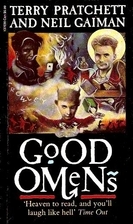
I also remember going to a signing in Bath on the Anansi Boys tour and wondering where the crowds were – this was Neil Gaiman, surely the line would be around the block? It seemed not, I joined a small crowd, what seemed like twenty or thirty people in Waterstones Bath and wondered why there weren’t more people there.
I ran a virtual reading group on the website Librarything for a group read of Sandman from start to finish. Lots of people wanted to take part in that because Sandman is such a stand out work in comics.
The next time I went to a signing in Bath, for The Ocean at the End of the Lane, I queued for so long I finished reading the book in the queue. I know other folks that were there for much longer than me too. There were a LOT of people at that signing. It was, until this book, the last thing I’d read of Neil’s. Incidentally, there is a short film about that signing tour (Thanks to Cavan Scott for pointing that one out) here:
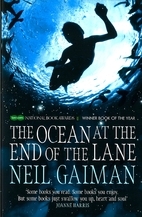
I’ve seen Neil variously at signings and conventions and book festivals and on online videos and his voice has got inside my head.
This is a bit of a problem when reading his books – as my internal voice is Neil’s voice, narrating. Some people may see that as a good thing, but it’s really rather distracting.
His voice has got inside my head in other ways too. When I was writing for a roleplaying company I riffed off the idea of the “house without doors” in an interdimensional maintenance area powered by stories as an overlay to the main world of the RPG. There was a little bit of Time Bandits in there as well, in that if you could influence the stories in the right way you could travel from one place to another exceedingly fast. I may very well revisit that whole concept in a novel in the future.
![Time Bandits [screenplay] by Michael Palin](https://i.gr-assets.com/images/S/compressed.photo.goodreads.com/hostedimages/1487204612i/21987157.jpg)
When it became time to stop writing for the RPG I started writing short stories and, eventually, novels. And Neil’s voice was obviously still whispering away in the back of my brain. There were conscious riffs – Neil himself riffed off John Fowles’s Mantissa (trapping a muse in the Sandman story Calliope) and I riffed off both of them in my story – Le Sacre du Printemps (published in A Tiding of Magpies).
When Paul Cornell ** wrote of me, in the introduction to A Tiding of Magpies, “He reminds me a bit of Neil Gaiman, in that he enjoys the business of story itself, and shares that enjoyment with the reader rather than hiding secret references.” I was extremely flattered. I was even more flattered when I read Paul’s Shadow Police novel in which he turned Neil Gaiman into a character! He must also have Neil’s voice in his head…
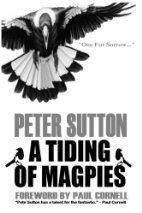
And that’s the key to Neil’s success I think. That he loves stories. Here he is in a late essay in this collection, an introduction to Anthony Martignetti’s book Beloved Demons:
“We both had a fascination with, and a delight in, stories. Do not give either of us gifts; give us the tale that accompanies the gift. That is what makes the gift worth having… The joys of the gifts are in the stories.”
And in this collection of his writings, on subjects as diverse as the Oscars, Syria and libraries, the core engine that drives each of them is story.
And so to come full circle (perhaps) the essay that ends this collection is the introduction to Terry Pratchett’s A Slip of the Keyboard (itself a beautiful collection, and one that made me think I had something in my eye in the last section of it).
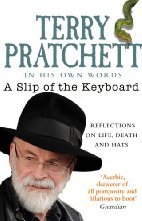
But don’t let me tell you about it. Let Neil’s voice get inside your head too. Here is the full reading he did of his introduction on the BBC
I would say that this book is for Neil’s hardcore fans or fellow writers but once his voice is inside your head, once you love stories too, you’ll definitely be the former, and probably will want to be the latter.
*The title essay is about Neil’s attending the Oscar’s – for some of us we’d be lucky to be anywhere within several miles of the “cheap seats”!
**By the way, I do remember where and when I met Paul Cornell. It was at Emma Newman‘s Forbidden planet launch for Between Two Thorns.


Pete Sutton's Blog
- Pete Sutton's profile
- 14 followers



